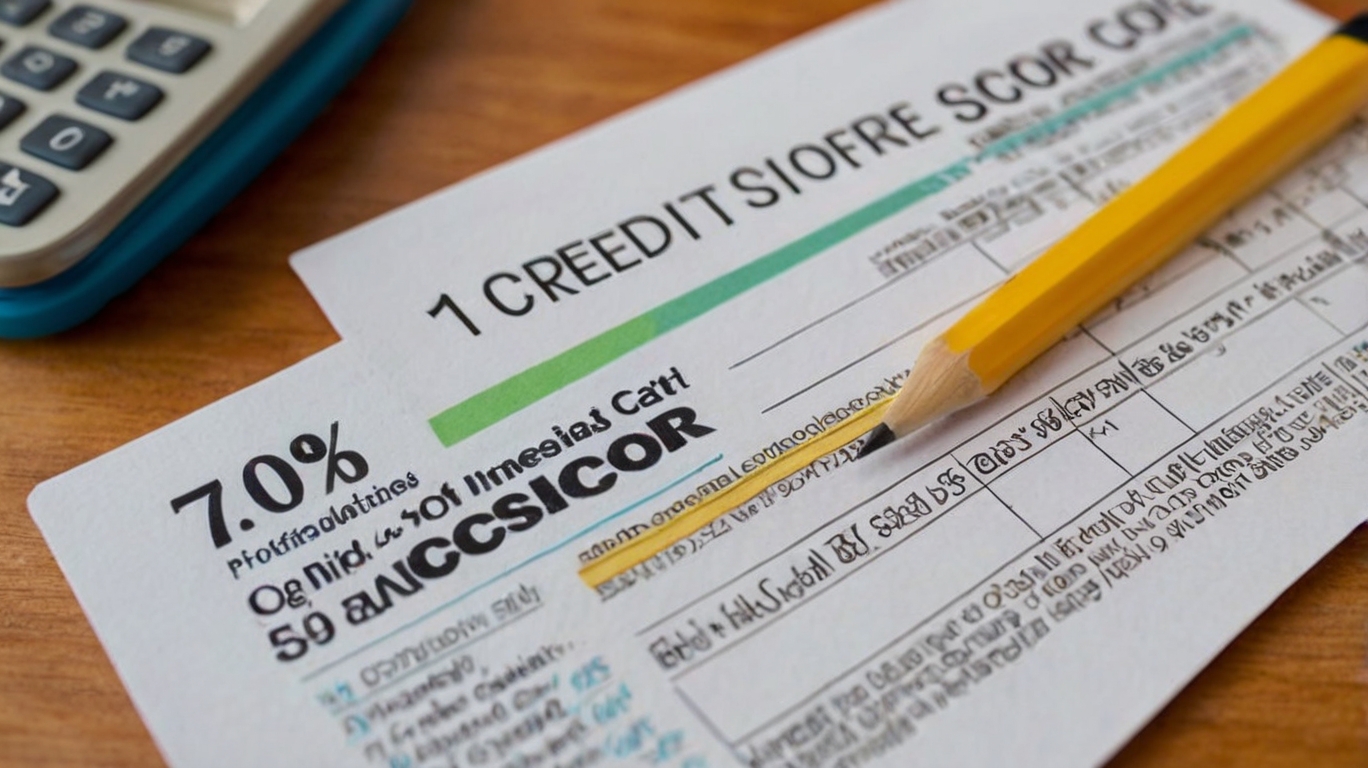Introduction: The Importance of a Good Credit Score
💲How to increase credit score knowledge is essential for anyone wondering why some people always get the best interest rates on loans and mortgages while others struggle with higher costs.
This critical three-digit number impacts virtually every aspect of your financial life, from apartment rental applications to insurance premiums.
By understanding the factors that influence your score and taking deliberate steps to improve it, you can unlock significant savings opportunities and gain access to better financial products, ultimately strengthening your overall economic position.
Your credit score is essentially a measure of your creditworthiness, determined by analyzing your borrowing history and financial behavior. Lenders use this score to assess the risk of lending to you.
A higher credit score indicates a lower risk of default, which makes you more attractive to lenders and can lead to better loan terms. But how do you go about increasing this all-important number? 🌟
Understanding Credit Scores
To grasp how to improve your credit score, it’s essential to understand how these scores are calculated and what they mean.
| Score Range | Rating | Impact |
|---|---|---|
| 300-579 | Poor | High risk, difficult to get loans |
| 580-669 | Fair | Medium risk, limited loan options |
| 670-739 | Good | Lower risk, easier approval for loans |
| 740-799 | Very Good | Very low risk, competitive loan rates |
| 800-850 | Excellent | Minimal risk, best loan rates |
Your credit score is calculated using a variety of factors, including payment history, credit utilization, length of credit history, new credit accounts, and credit mix. Payment history accounts for about 35% of your score, making timely payments critical.
Credit utilization, or the percentage of available credit being used, should ideally be kept below 30% to positively impact your score. 🌟
Payment History: The Foundation of Your Score

💲Your payment history is the most significant factor affecting your credit score. Late payments are a red flag to lenders, signaling financial instability. Conversely, a history of on-time payments can significantly boost your score.
“Your credit score is not just a number; it’s your financial reputation,” says financial expert John Doe.
“Building a strong credit score is like building trust. It requires consistent, responsible behavior over time.”
Maintaining regular payments can be easier said than done, especially in challenging times. However, setting up automatic payments and reminders can help ensure that you never miss a due date. 🌟
Credit Utilization: Balancing Credit and Debt
💲Credit utilization represents the second largest component of your credit score calculation. It measures how much of your available credit you are using. Ideally, you should aim to use less than 30% of your total credit limit at any given time.
1- Pay down existing debts: Reducing the balance owed can significantly lower credit utilization.
2- Increase credit limits: Requesting a higher credit limit can effectively lower your utilization rate.
3- Keep old accounts open: Closing unused credit accounts may raise your utilization ratio.
4- Monitor spending: Regularly track credit card use to avoid exceeding the recommended utilization percentage.
Length of Credit History: Time Matters
The length of your credit history accounts for about 15% of your score. It considers the age of your oldest account, the age of your newest account, and the average age of all your accounts. Generally, the longer your credit history, the better your score.
Maintaining older accounts, even if they are not actively used, can improve this portion of your score. Be cautious about closing old accounts, as this can shorten your credit history and potentially reduce your score.

Diversifying Your Credit Mix
💲Having a mix of different types of credit, such as credit cards, mortgages, and auto loans, can positively impact your credit score. This diversity shows lenders that you can manage different types of credit responsibly.
However, it’s important not to open new accounts solely to increase your credit mix, as this can lead to unnecessary debt. Focus on responsibly managing the credit you already have before seeking new credit types. 🌟
New Credit: Managing Applications and Inquiries
When you apply for new credit, lenders perform a hard inquiry on your report. While a few inquiries won’t devastate your score, multiple inquiries in a short time can lower it.
To minimize the impact of new credit applications, be strategic about when and why you apply for new accounts. Limit applications to when you truly need additional credit and consider spacing out applications over time.
Monitoring Your Credit Report
💲Regularly reviewing your credit report is an important strategy for maintaining a healthy score. Errors on your report can unfairly lower your score. By law, you are entitled to one free credit report annually from each of the three major credit bureaus: Experian, TransUnion, and Equifax.
Carefully check each report for inaccuracies and take action to correct them. Disputing errors can be done online and usually resolves disputes within a month. 🌟
Strategies for Rapid Improvement
If you need to boost your credit score quickly—perhaps to secure a loan or mortgage—certain strategies can help expedite the process.
1- Focus on paying off credit card balances rather than installment loans.
2- Consolidate debts if it reduces interest and simplifies payments.
3- Avoid new hard inquiries until your score improves.
4- Request credit increases or become an authorized user on a more established account.
By targeting specific areas that influence your credit score, such as utilization and payment history, rapid improvements are possible. However, maintaining these improvements requires continued responsible financial behavior.
FAQ – Common Questions
✅ What is a credit score?
A credit score is a numerical representation of your creditworthiness, based on your credit history and financial behavior.
✅ How often should I check my credit score?
It’s advisable to check your credit score at least once a year, or more frequently if you’re planning to apply for new credit.
✅ Will checking my credit score affect it?
No, checking your own credit score is considered a soft inquiry and does not impact your score.
✅ How long do late payments stay on my credit report?
Late payments can remain on your credit report for up to seven years, impacting your score throughout that time.
✅ Can I remove negative information from my credit report?
Negative information can be disputed if it’s incorrect; otherwise, it generally remains on your report until it naturally falls off.
Conclusion
💲Increasing your credit score is not just about boosting a number; it’s about creating opportunities for financial growth and stability.
By understanding the factors that affect your score and taking strategic steps to improve it, you can unlock a future with lower interest rates, better loan terms, and increased financial freedom.
Whether you’re starting from scratch or rebuilding after past challenges, a better credit score is within reach with patience and responsible financial management. 🌟
👉 From Zero to Financial Freedom
The “From Zero to Financial Freedom” course is essential to ensure a more prosperous and peaceful future for you and your family. It’s an excellent option for those seeking efficiency and quality on their journey toward financial independence.

